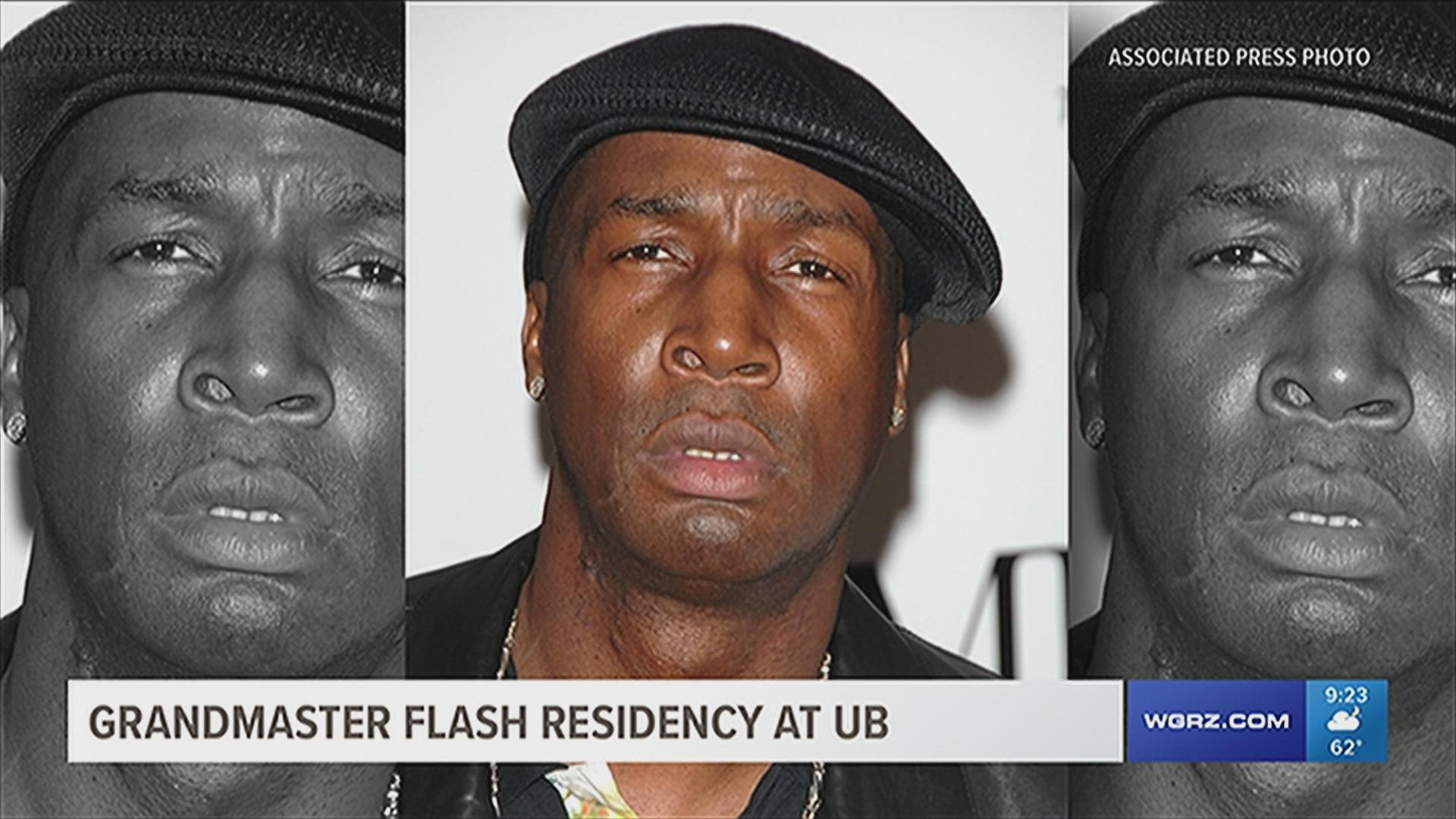BUFFALO, N.Y. — University at Buffalo students will be the first to learn from one of the innovators of hip-hop. Grandmaster Flash is coming to the UB for a three day in-person residency this fall.
Flash, who is one of the pioneers of hip-hop and leader of Grandmaster Flash and the Furious Five, will direct the Working Artists Lab at UB this fall for the hip-hop inspired programming by the Arts Collaboratory.
“The residency at UB gives me a chance to tell hip-hop’s whole story. The sights. The sounds. The places and the moments,” Flash said. “It’s important that we get this history right. For the next generation to take music and art in new directions, they have to know where that music and art came from, who made it and how.”
Flash emerged in the 1970s as a trendsetter, utilizing new techniques like a DJ backspinning records, cutting and scratching. This is, in part, credited for making hip-hop the artform it is and becoming a cultural phenomenon.
His list of accomplishments includes a Grammy, a Lifetime Achievement recognition from the Urban Music Awards, a BET Hip Hop Award, and Sweden’s Polar Prize.
The lab at UB will be the first time Flash is directly working with university students.
“Over the course of several weeks, students from UB and Buffalo State College, along with Buffalo-area artists, will have an opportunity to engage with one of the most important artists and innovators of our time – and he is making an ongoing commitment to UB," said, Bronwyn Keenan, director of UB’s Arts Collaboratory. “This is not one-and-done.”
According to UB, Flash plans on returning annually to continue teaching students and engage with the community.
Flash will talk to students through video conference before he begins his three-day in-person residency on Sept. 30. His schedule includes a private incubator session, master class and session for students to share their work. His full schedule is available online.
A showing of Flash's film “Hip-Hop: People, Places & Things” will take place on Sept. 30 for students. The film goes through the origins of hip-hop and what elements created it back in the 70s.
“He shared the film with me and my reaction was immediate: This is something that should be made available to higher education students,” Keenan said. “If you want to get the origin story right, the academy is the place to go.”
Keenan encouraging Flash to show students the film is what set Flash's residency into motion.
“I hope to inspire students to get out there. I want them to make it happen. Do something different,” Flash said. “I didn’t handle vinyl by the edges. I put my fingertips on the record’s surface. That was different and a lot of people didn’t like the way I was treating the records. I may not have been the first DJ, but I was the first DJ that showed how a turntable could be an instrument.
“Now I have a chance to work with students and encourage them to do the same. It’s important to me.”

